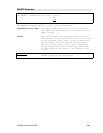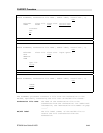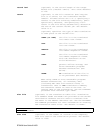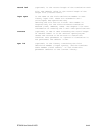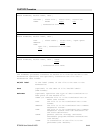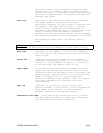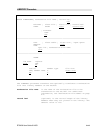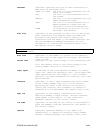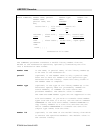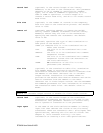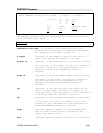
ETU400 User Guide 011603
G-14
When using *SAVE to move executable programs between
workstations, all necessary data (including Mac data
and resource forks) is transferred. Data must have been
previously transferred with the FILEFRPC procedure with
reformat type *SAVE.
xlat file (optional) is the translation table file. Translation
file member ETOA1 is provided on the AS/400
distribution diskette and can be used to translate from
the EBCDIC to the ASCII character set in variable
length records. Translation file member ETOA2 is
provided on the AS/400 distribution diskette and can be
used to translate from the EDCDIC to the ASCII
character set in fixed length records. See the EDITABLE
and COMPILE procedures for more information on creating
new translation table files. The default value is
ETOA1.
Mac Users: Do not use the default “xlat file” value. You must use either
ETOA1M for variable-length records or ETOA2M for fixed-length records.
xlat size (optional) is the number of records in the temporary
work file used in the translation process. The default
value is 1000.
record len (optional) is the record length of the translated
(workstation-formatted) AS/400 file to be sent to the
workstation. This parameter is ignored if translation
is not performed. The default value is 128.
input specs is the name of the field definition member in library
“spec lib” that defines the fields of the file being
translated. These are standard F and I (file/input) RPG
specifications, defining the file and its fields. This
member is required only for the field-oriented
translation methods (*DIF, *BASICS, *TAB). See Chapter
5 for more information on creating F and I RPG
specifications.
spec lib (optional) is the library containing the field
definition member (“input specs”), and the translation
table member (“xlat table”). If left blank this
parameter defaults to the current library.
workstation file name is the name of the workstation file to receive
the data from the AS/400. For additional information,
see “Workstation File Name” on page 4-2.





